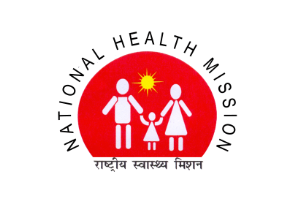- Skip to main content
- Skip to navigation
- Screen Reader Access
- Text Size
- Select Theme Default Theme Yellow Theme Pink Theme Blue Theme
- हिंदी में

The National Health Mission (NHM) envisages achievement of universal access to equitable, affordable & quality health care services that are accountable and responsive to people's needs.

MMU Activities in Uttarakhand with cooperation with The HANS Foundation
Result of Walk in Interview of Medical Officers and Specialists (Interview date 13/12/2024)
Vacancy updates for the post of Medical Officer and Specialists date 12/12/2024
Medical Officers & Specialists Doctors result for the Interview held on Dt. 08 October 2024
Important notice for walk in interviews of Medical Officers and Specialists
|
Rashtriya Bal Swasthya Karyakaram (RBSK) The ‘Child Health Screening and Early Intervention Services’ programme under National Rural Health Mission initiated by the Ministry of Health and Family Welfare, therefore, aims at early detection and management of the 4Ds prevalent in children. These are Defects at Birth, Diseases in children, Deficiency conditions and Developmental Delays including Disabilities. Comprehensive Child Health screening and management as a public health approach assures a package of health services for all children from birth to 18 years of age under the Rashtriya Bal Swasthya Karyakram (RBSK) initiative. Health screening of children is a known intervention under the School Health Programme. It is now being expanded to cover all children from birth to 18 years of age. The programme has been initiated as significant progress as already has been made in reducing child mortality under the National Rural Health Mission. However, further gains can be achieved by early detection and management of conditions in all age groups. The ‘Child Health Screening and Early Intervention Services’ will also translate into economic benefits in the long run. Timely intervention would not only halt the condition to deteriorate out would also reduce the out-of –pocket expenditure of the poor and the marginalized population in the State. Additionally, the child health screening and early intervention services will also provide state wide epidemiological data on the 4Ds (i.e. Defects at birth, Diseases, Deficiencies and Developmental Delays including Disabilities). Such a data is expected to hold relevance for futures planning of area specific services. There are also groups of diseases which are very common in children e.g. dental caries, otitis media, rheumatic heart disease and reactive airways which can be cured if detected early. It is understood that early intervention and management can prevent these conditions to progress into more severe and debilitating forms, thereby reducing hospitalization and resulting in improved school attendance. Rashtriya Bal Swasthya Karyakaram (RBSK) is being implemented in the State from the financial year 2012-13. This programme is being run in the state in convergence with education, ICDS, Social Welfare and other departments. There are 148 Mobile health teams functional in the state for health examination of the school and Aaganwadi children. Total 12.22 lakhs children enrolled in schools and 8.26 lakhs are targeted for health examination in 2016-17. Due to difficult geographical conditions, distance of school and AWCs from road head and sparse population, existing number of team per district are able to examine each child once a year in school and twice in a year in Aaganwadi Centres. Under the RBSK Program 4Ds are covered :
10. Anemia especially Severe Anemia 11. Vitamin A Deficiency (Bitot spot) 12. Vitamin D Deficiency (Rickets) 13. Severe Acute Malnutrition 14. Goiter
15. Skin conditions (Scabies, Fungal Infection and Eczema) 16. Otitis Media 17. Rheumatic Heart Disease 18. Reactive Airway Disease 19. Dental Caries 20. Convulsive Disorders
21. Vision Impairment 22. Hearing Impairment 23. Neuro-Motor Impairment 24. Motor Delay 25. Language Delay 26. Cognitive Delay 27. Behaviour Disorder (Autism) 28. Learning Disorder 29. Attention Deficit Hyperactivity Disorder 30. Congenital Hypothyroidism, Sickle Cell Anaemia, Beta Thalassemia (Optional based on epidemiological situation and availability of testing and specialized support) District Early Intervention Centre (DEIC) Under the RBSK Program 04 District Early Intervention Centres are functioning at Regional level. These four District Early Intervention centres are situated in Dehradun, Haridwar, Nainital and Almora district i.e. DEIC, Coronation Hospital, Dehradun; DEIC, Combine Hospital, Roorkee; DEIC, Base Hospital Haldwani and DEIC Base Hospital Almora. The main function of the DEIC is: to confirm diagnosis of the children referred for Defects at Birth, Deficiencies, Diseases and Developmental Delays including disabilities, by the Mobile Health Team, Delivery Points, ASHAs and self referral. To coordinate tertiary level treatment and children beyond six years of age with Neuro-motor impairments will be referred for further continuation of therapy and education to the rehabilitative and educational institutions etc. During holidays in the schools, these school health teams will be involved in the examination of children in VHNDs and organization of Adolescent Health Camps under the ARSH programmes.
The broad goals and services for DEIC include: a. Screening of Children from Birth-18 Years for 4D’s b. Early Identification of Selected Health Conditions c. Holistic Assessment d. Investigations e. Diagnosis f. Intervention g. Referral h. Prevention i. Psycho-social Interventions
Services Provided by DEICs: a. Core Services :
b. Supplementary services:
A) Disability division of Ministry of Social Justice and Empowerment (MoSJE):
B. Linkages with Ministry of Human Resource Development (MoHRD), Department of School Education & Literacy under “Education of Children with Special Needs in “Sarva Shiksha Abhiyan”
|